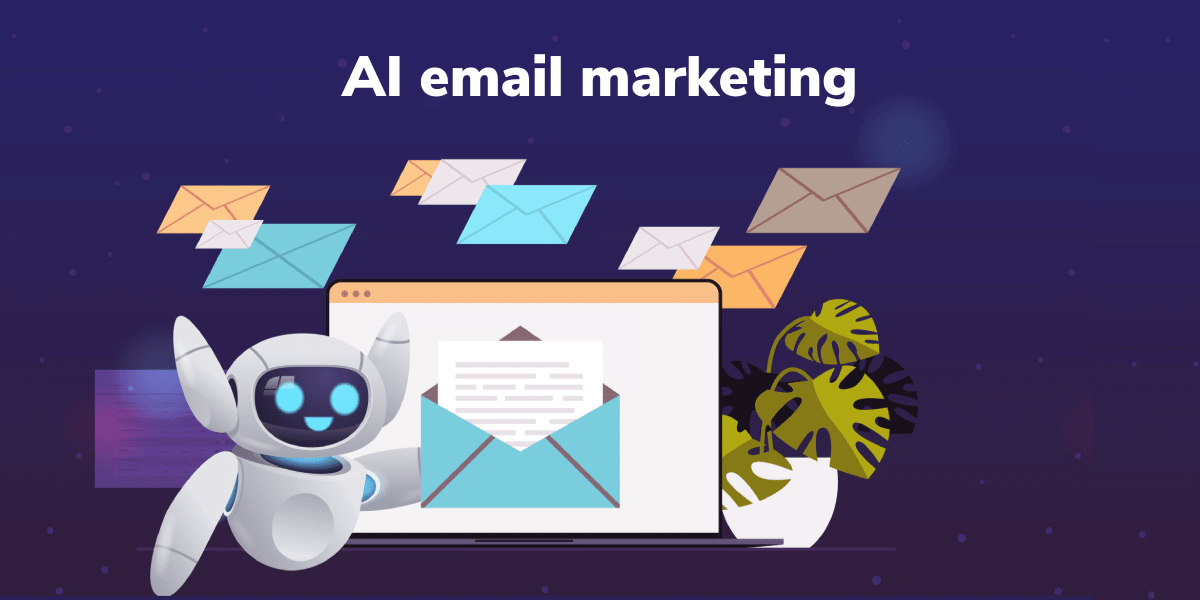Customer experience and User experience both sound similar at a certain level, but they are not. Neither of them are mutually exclusive, but there’s a fine line of difference ( at the experience level) that distinct one from the other.
Customer experience and User experience both sound similar at a certain level, but they are not. Neither of them are mutually exclusive, but there’s a fine line of difference ( at the experience level) that distinct one from the other.
User Experience (UX) is all about how your users vibe with your product – the feel-good factor when they interact with it. We measure this groove with metrics like success rate, error rate, and the cool digital stuff, like clicks to get things done. According to recent studies, 90% of users have stopped using an app due to poor performance. This stat underscores the importance of a seamless UX in retaining users.
Now, Customer Experience (CX), on the flip side, is like the big picture of how peeps connect with your whole brand. We are talking about the whole matter– the overall experience, how likely they are to stick around, and if they’d shout about it to their buddies. Think of UX as the smooth dance moves in the broader groove of CX. It’s like UX is the snazzy beat drop, but CX is the entire party playlist, including stuff beyond just the product. Cool, right?
CX is the more advanced version of UX
User experience happens at the individual level and not holistic. While a user experience revolves exclusively around the product or services, the CX seeks to fill out the empathy gaps that user experience often leaves out at a level.
CX talks about the overall satisfaction level and the emotional connect a user develops with the brand. When the experience of a user develops at various stages of the customer lifecycle, it finally translates into a 360-degree understanding of the brand as a whole. It involves emotional, psychological, and practical elements that shape the user’s relationship with the company.
High quality digital UX gives a user/customer the ability to:
- Seamlessly extract information from the website
- Effortless completion of tasks
- Easy navigation
Good CX gives a user/customer the ability to:
- Experience pleasant interaction with organization/company representatives
- Develop an emotional connect with the brand and everything associated with it
The Role of UX and CX in Charting Business Success
Today, when customer-centricity is paramount, both User Experience (UX) and Customer Experience (CX) become instrumental in shaping the success of businesses. 70% of business leaders see UX and CX as competitive differentiators, highlighting their importance in driving business growth.
Key Elements of UX
Usability: The ease with which users can accomplish their tasks within a given system.
Accessibility: Ensuring that the product is usable by people with disabilities.
Design: The visual and interactive elements that contribute to a positive user experience.
Performance: The speed, responsiveness, and efficiency of the product or service.
According to a study by Forrester, a well-designed user interface could raise a website’s conversion rate by up to 200%. 75% of users judge a company’s credibility based on its website design, says Qualtrics.
Website Navigation
Smooth and effortless website navigation is the key element that goes a long way to shaping a positive user experience. For example, Amazon’s website comes with an easy-to-navigate interface, thus allowing users to find their products in the most hassle-free way possible.
Mobile App Usability
Usability of the mobile apps is also considered a crucial element of creating a positive UX experience. Apps like Instagram and Uber are exemplary in terms of app usability. Their interfaces are user-friendly, providing a seamless experience from onboarding to daily interactions.
Key Elements of CX
1. Holistic Nature: CX considers every interaction, from marketing and sales to customer support and beyond.
2. Consistency: Providing a consistent experience across various touchpoints.
3. Emotional Connection: Establishing an emotional connection with the customer throughout their journey.
73% of customers point to customer experience as an important factor in their purchasing decisions, quotes PwC. A study by Temkin Group found that companies that earn $1 billion annually can expect to gain, on average, an additional $700 million within three years of investing in customer experience.
Examples of CX in Action
End-to-End Customer Journey
Companies like Apple excel in managing the entire customer journey, from product discovery and purchase to after-sales support. The seamless transition between online and in-store experiences contributes to a positive overall customer experience.
Multi-Channel Engagement
Brands like Starbucks successfully engage customers across multiple channels, integrating their mobile app, physical stores, and online presence. This omnichannel approach ensures a consistent and positive customer experience.
Intersection of UX and CX
While UX is a subset of CX, both play integral roles in shaping the overall brand perception. For instance, an improvement in the usability of an online shopping platform (UX) contributes directly to the positive perception of the brand’s overall shopping experience (CX).
Measuring the Elusive Customer Experience: Beyond Simple Metrics
While the allure of a single, definitive metric for measuring customer experience (CX) is tempting, it’s a mirage. A truly holistic understanding of CX demands a multifaceted approach that goes beyond the popular Net Promoter Score (NPS).
NPS: A Starting Point, Not the Finish Line
Though widely used, NPS alone provides a limited view of customer loyalty and advocacy. It captures a snapshot of customer sentiment, but fails to pinpoint specific areas for improvement.
Beyond Satisfaction, Towards Actionable Insights
Customer satisfaction (CSAT) offers another valuable perspective, illuminating customer sentiment towards specific interactions. But CSAT, like NPS, needs to be complemented by metrics that inform action.
Here are key metrics that paint a richer picture of CX
1. Customer Lifetime Value (CLV): This metric reveals the total revenue a customer generates throughout their relationship with your brand. Understanding CLV allows you to tailor your efforts towards high-value customers and optimize customer retention strategies.
2. Churn Rate: This metric indicates the percentage of customers who stop doing business with you. A high churn rate signifies dissatisfaction and lost revenue potential, prompting you to address its root causes.
3. Meeting Expectations: This metric measures the gap between customer expectations and their actual experiences. It reveals areas where your brand falls short, empowering you to bridge the gap and exceed expectations.
4. Customer Effort Score (CES): This metric measures the ease and effort involved in engaging with your brand across various touchpoints. A low CES indicates a seamless experience, while a high CES highlights areas for improvement.
5. Customer Advocacy: This metric assesses the likelihood of customers recommending your brand to others. It reflects their loyalty and trust, providing valuable insights into your brand’s reputation.
CX: A Superset of UX – The Foundation of Delight
Great CX rests upon a foundation of exceptional user experience (UX). UX metrics, traditionally focusing on tactical aspects like conversion, engagement, and perceived credibility, provide crucial insights into the ease, efficiency, and emotional impact of interacting with your brand.
By integrating UX metrics into your CX framework, you can:
Identify and address usability issues that impede customer journey.
Optimize user flows for better engagement and conversion.
Foster positive emotional connections with your brand.
The Evolving Landscape of Customer Experience
It’s important to remember that CX metrics are not static. Customer needs and expectations constantly evolve, demanding a dynamic approach to measurement. Regularly reviewing your metrics and adapting your strategy ensures you stay ahead of the curve and deliver a CX that truly delights your customers.
Ultimately, measuring CX is not about finding a single magic number, but about gaining actionable insights. By embracing a multi-faceted approach, integrating UX metrics, and staying attuned to evolving customer expectations, you can build a CX framework that drives loyalty, advocacy, and long-term success.
Impact on the Business
Financial Implications
Companies that prioritize positive UX and CX often witness significant financial growth. For example, after revamping its user experience, Airbnb experienced a 30% increase in conversions, resulting in a substantial boost in revenue.
Competitive Advantage
Investing in superior UX and CX provides a distinct competitive advantage. A survey by Deloitte found that 62% of companies view customer experience provided by competitors as a significant threat.
Challenges and Strategies
1. Lack of Alignment: Misalignment between different departments on the importance of UX and CX.
2. Limited Resources: Insufficient resources dedicated to the development and enhancement of UX and CX.
Strategies for Success
1. Cross-Functional Collaboration: Encouraging collaboration between departments to ensure alignment.
2. Continuous Improvement: Adopting a mindset of continuous improvement, addressing challenges as they arise.
The Final Takeaway
While spoken in the same breath, User Experience (UX) and Customer Experience (CX) are distinct yet intertwined concepts. UX focuses on the user’s interaction with a specific product or service, striving for intuitiveness, efficiency, and emotional connection. In contrast, CX encompasses the user’s entire journey with a brand, encompassing every touchpoint from marketing and sales to customer service and support.
The Common Goal
Despite their differences, UX and CX share a common goal: to create a positive and memorable experience for the user. This intricate connection requires a delicate balance, with UX providing the foundation for a delightful customer journey and CX orchestrating the entire experience, ensuring seamlessness and emotional resonance across all touchpoints.
Thriving in a Customer-Centric Era
In a hyper-competitive landscape, where customer experience is the sole differentiator, neglecting either UX or CX spells disaster. By strategically investing in both, businesses can unlock tremendous benefits:
- Enhanced Brand Perception: A positive user experience fosters trust and loyalty, leading to stronger brand perception and positive word-of-mouth recommendations.
- Increased Customer Engagement: A seamless and engaging customer journey encourages users to interact with your brand more frequently, boosting conversion rates and driving revenue growth.
- Reduced Customer Churn: A delightful experience increases customer satisfaction and reduces churn, ensuring long-term customer relationships and recurring revenue streams.
- Improved Operational Efficiency: By identifying and addressing pain points in the user journey, businesses can streamline operations and optimize resources, leading to increased profitability.
The Winning Formula: Recognition and Investment
The key to harnessing the power of UX and CX lies in recognizing their variations and uniqueness and strategically allocating resources to each. Here’s what is needed
- Establish dedicated teams: Create separate teams for UX and CX, each with specialized skills and expertise.
- Cross-functional collaboration: Foster open communication and collaboration between UX and CX teams to ensure a cohesive and holistic customer experience.
- Data-driven decision-making: Utilize analytics to track key metrics for both UX and CX, identifying areas for improvement and measuring the impact of your efforts.
- Continuous improvement: Embrace a culture of continuous learning and improvement, constantly refining your UX and CX strategies to adapt to evolving customer needs and preferences.
Precisely, investing in UX and CX both helps create a winning formula for sustained growth and customer loyalty. They help orchestrate a symphony of delight, where each touchpoint resonates with the user, building lasting relationships and securing a competitive edge in the ever-evolving customer landscape.











.jpg)



